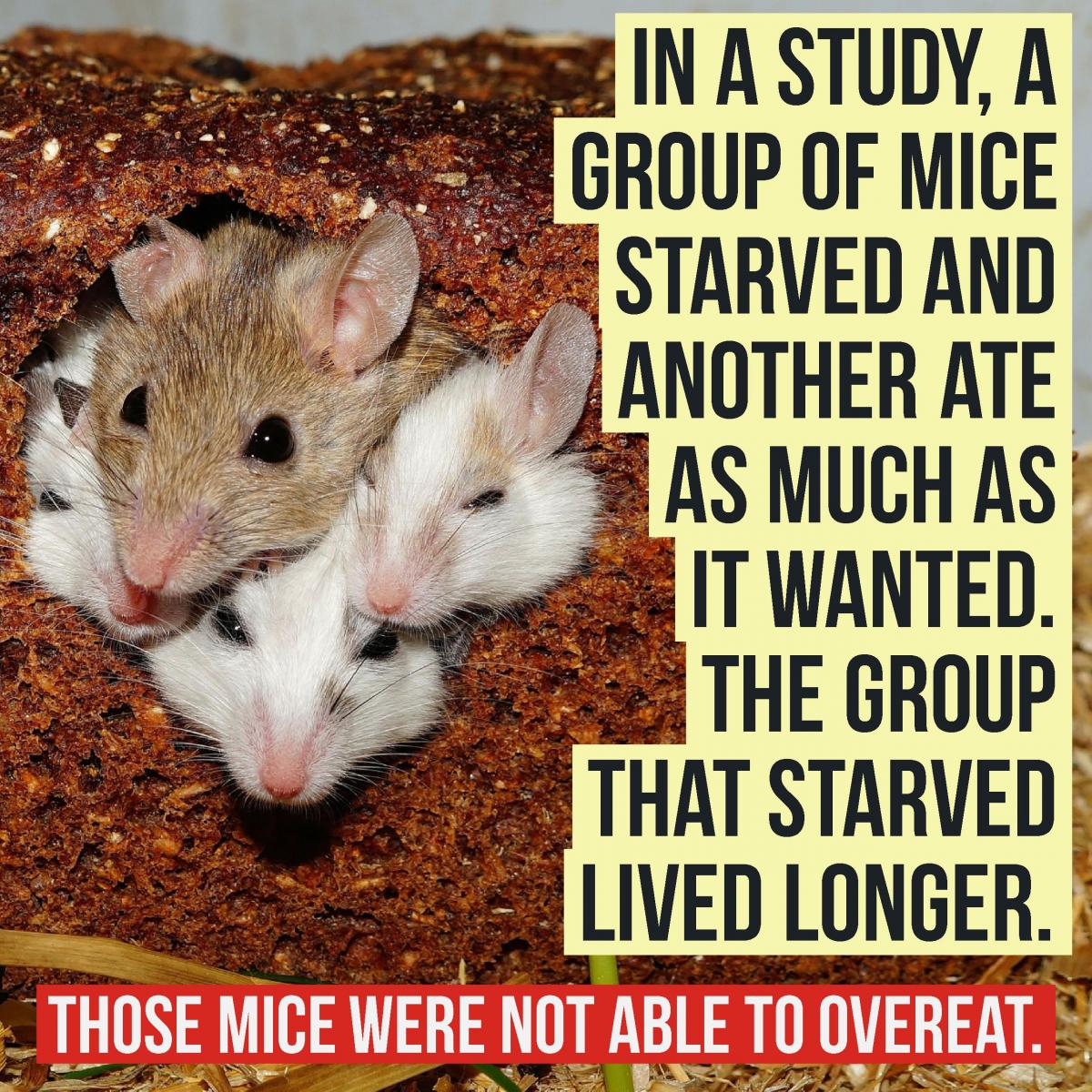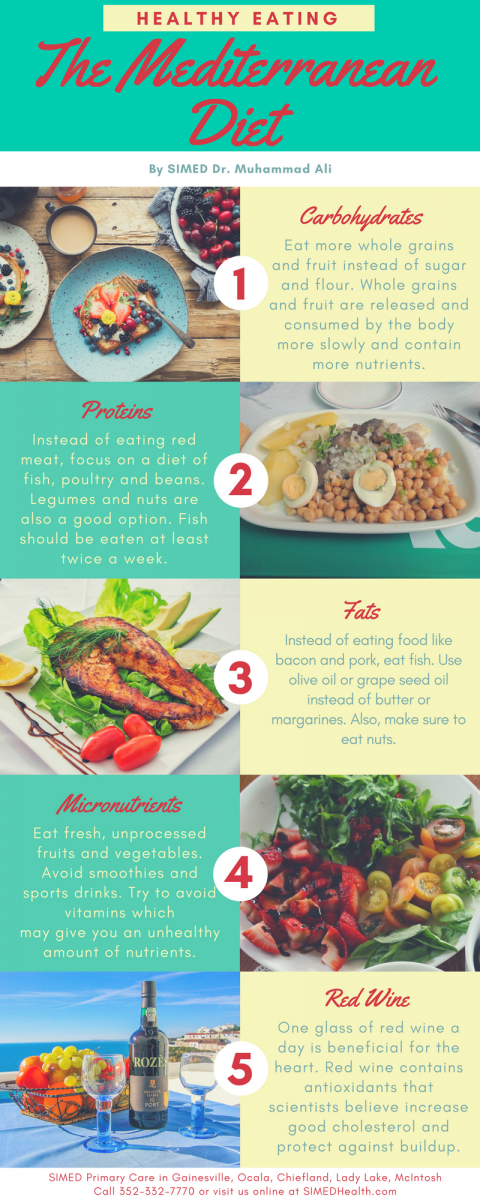
We understand the importance of maintaining a healthy lifestyle. September is National Cholesterol Month, and September 29th is World Heart Day. Join us as we look into the best foods for a strong heart and healthy cholesterol level.
We interviewed Dr. Muhammad Ali, a SIMED Primary Care physician, to get the details on the best diet for a healthy heart.
The Mediterranean Diet: Key to a Healthy Heart and Body
The main nutrients everyone needs to live are carbohydrates, protein and fats. The carbohydrates help with energy production, the fat molecules influence hormone activity in the body, and the protein is necessary for muscle growth. The body also needs micronutrients like cobalt, zinc and iron.
The Mediterranean diet is healthy for the heart because it does not include artificial sugar and unhealthy foods that lead to a higher cholesterol level and heart rate. The Mediterranean diet uses more grains as carbohydrates and more fresh fruits and vegetables instead of refined sugar, and includes all essential nutrients.
The Mediterranean diet focusses on eating more unprocessed foods, whole grains and fish and poultry. Before we go into what exactly the Mediterranean diet consists of, we need to look into why it’s the best diet.
 The Mediterranean Diet: An Evolutionary Stand Point
The Mediterranean Diet: An Evolutionary Stand Point
The Mediterranean diet consists of food people have eaten for centuries.
The diet avoids sugar and sugary drink which are not good in large quantities and lack nutrients. People, until recently, did not drink fruit juices or consume a lot of sugars. The sugar they consumed came from fresh fruit that they ate as it was available to them. Sports drinks and soft drinks are not natural because they contain refined sugar that is quickly used up and don’t contain other vitamins and nutrients.
A relatively recent invention was the use of hydrogenated fats (fats that had chemicals added to them to make them hard at room temperature). Foods that are hydrogenated include bacon, margarine, and fried food. In the past, humans had not been exposed to hydrogenated fats or foods that include saturated fats that raise the blood cholesterol and increase risk of heart disease.
In the past people would only eat fish and small birds because those animals were more easily obtained. Poultry and fish also contain less saturated fat and more unsaturated fats which is good for the heart. Red meat, which people in the past would only eat about once a month, contains saturated fat and is not a part of the Mediterranean diet.
What foods are in the Mediterranean diet?
- Carbohydrates – The Mediterranean diet includes more whole grains and fruit instead of refined sugar and flour. The whole grain foods and fruit are released and consumed by the body more slowly than refined sugar and flour and contain more nutrients.
- Proteins – Instead of eating red meat, focus on a diet of fish, poultry and beans. Legumes and nuts are also a good option. Fish should be eaten at least two times week.
- Fats – Instead of eating food like bacon and pork, eat fish. Use olive oil or grape seed oil instead of butter or margarines. Also make sure to eat nuts.
- Micronutrients – Eat fresh, unprocessed fruits and vegetables. Avoid smoothies and sports drinks that lose the healthy nutrients when they’re made and significantly increase the body’s insulin levels. Also try to avoid vitamins which contain free radicals and may give you an unhealthy amount of nutrients.
- Red wine – One glass of red wine a day is beneficial for the heart. Red wine contains antioxidants that scientists believe increase levels of good cholesterol and protect against cholesterol buildup.
Why Moderation is Important
Moderation is another important key to a healthy diet. The amount of food you consume is dependent on your energy level. An athlete like Michael Phelps who burns 4,000 calories daily in preparation for the Olympics won’t be eating the same amount of food as the average person.
When more energy is stored because it isn’t used, we gain more weight and have heightened risk of high blood pressure and a high heart rate. The people in the U.S. have not had a chance to adapt to the convenience of processed foods which is part of the reason why obesity and diabetes is prevalent.
In the past, being fat meant you had food stored up to use later and was seen as a good thing. Because food is now conveniently available, your body no longer needs to store the food and you can consume less more frequently.
In a study done in 2008 published in Science Daily, a group of mice was starved and another group of mice was able to eat whatever it wanted. The mice that starved lived longer because they were not able to overeat.
Every time we eat food, we consume nutrients our bodies can use and free radicals that are not healthy for our body.
Other General Tips
1. Take Time to Enjoy Your Meal
People who follow the Mediterranean diet take time to eat their breakfast, lunch and dinner. Because they concentrate on eating, they are less likely to overeat and more likely to eat healthier foods.
2. Avoid Fried, Processed and Unhealthy Food
Prepare food by baking it instead of frying. Most foods in the Mediterranean diet don’t need to be fried. Avoid fried foods which usually are more processed. While red meat is fine in moderation, an excess of red meat can have a negative effect on the body.
In areas where people live longer, there isn’t a “magic food” they eat to live longer. Instead they avoid unhealthy foods like burgers and processed cheeses. They also use more natural ingredients.
3. Exercise Regularly
Exercising is another important part of maintaining healthy levels of cholesterol and a healthy blood pressure. It’s good for the heart and good for blood circulation because it keeps arteries and blood vessels clean.
If you’re having problems with your cholesterol or blood pressure, schedule an appointment with a SIMED Primary Care physician at our Gainesville, Ocala, Chiefland, Lady Lake or McIntosh locations by calling 352-224-2225 or requesting an appointment online.